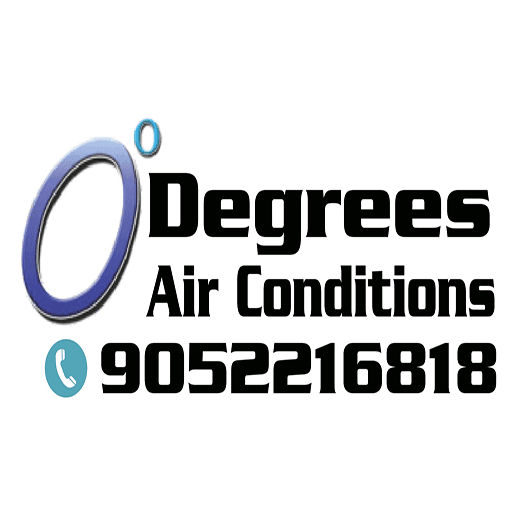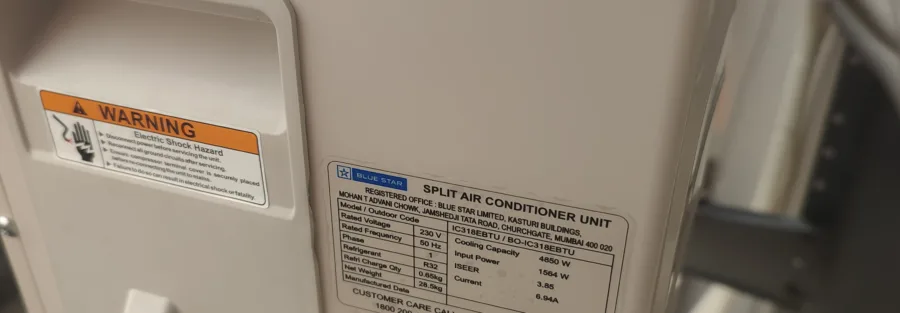https://www.quora.com/profile/0Degrees-Airconditions
Image Source: 0Degrees Airconditions Hyderabad (0Degrees Airconditions)
As the world becomes increasingly concerned about energy efficiency and environmental conservation, the demand for inverter aircon system has increased. Inverter air conditioners offer many benefits over conventional air conditioners, including better energy efficiency, quieter operation, and improved temperature control. In this article, I will discuss the science behind inverter tech air conditioners, how they work, and why they are more efficient than non-inverter air conditioners.
Introduction to Inverter Air Conditioner System
Inverter type air conditioners are designed to regulate the temperature of a room by using a variable speed compressor. The compressor adjusts the speed of the refrigerant flow based on the temperature of the room. The inverter technology enables the compressor to operate at variable speeds, which allows it to adjust the cooling capacity of the air conditioner to match the cooling demand of the room.
Traditional type air conditioners, on the other hand, operate at a fixed speed, which means that they are either on or off. When they are on, they operate at maximum capacity until the desired temperature is reached, and then they turn off. These consume a lot of energy during the start-up phase, which can cause spikes in energy consumption
How Inverter Air Conditioners Work
Inverter air conditioners use a variable speed compressor to regulate the temperature of the room. The compressor adjusts the speed of the refrigerant flow based on the temperature of the room. When the set temperature is reached, the compressor slows down to maintain the temperature. When the temperature starts to rise, the compressor speeds up to increase the cooling capacity
Inverter air conditioners also use a DC motor to drive the compressor, which consumes less energy than traditional AC motors. The DC motor is more efficient because it uses less electricity to start up and maintain its speed.
The Benefits of Using an Inverter Air Conditioner
Inverter air conditioners offer many benefits over traditional air conditioners, including better energy efficiency, quieter operation, and improved temperature control.
Energy Efficiency: Inverter air conditioners are more energy-efficient than traditional air conditioners because they can adjust the cooling capacity to match the cooling demand of the room. This means that they consume less energy than traditional air conditioners, which can save you money on your energy bills.
Quieter Operation: Inverter air conditioners are quieter than traditional air conditioners because they have a variable speed compressor. The compressor operates at a lower speed, which reduces the noise level of the air conditioner.
Improved Temperature Control: Inverter air conditioners provide better temperature control than traditional air conditioners. They can adjust the cooling capacity to match the cooling demand of the room, which means that they can maintain a more consistent temperature.
Energy Efficiency of Inverter Air Conditioners
The energy efficiency of an air conditioner is measured by the Seasonal Energy Efficiency Ratio (SEER). The SEER measures the cooling output of an air conditioner divided by the energy it consumes. Inverter air conditioners have a higher SEER rating than traditional air conditioners because they are more energy-efficient.
Comparing Inverter Air Conditioners with Non-Inverter Models
Factors to Consider When Choosing an Inverter Air Conditioner
When choosing an inverter air conditioner, there are several factors to consider, including the size of the room, the SEER rating, the noise level, and the brand. The size of the room will determine the cooling capacity of the air conditioner. The SEER rating will determine the energy efficiency of the air conditioner. The noise level will determine how loud the air conditioner is. The brand will determine the quality and reliability of the air conditioner.
Maintenance of Inverter Air Conditioners
Inverter air conditioners require regular maintenance to ensure that they operate efficiently. The filters should be cleaned or replaced every three months to ensure that the air conditioner operates at maximum efficiency. The outdoor unit should be cleaned to remove dirt and debris, which can reduce the efficiency of the air conditioner. The refrigerant levels should be checked and topped up if necessary.
Common Misconceptions about Inverter Air Conditioners
There are several common misconceptions about inverter air conditioners. One misconception is that they are more expensive than traditional air conditioners. While inverter air conditioners may be more expensive to purchase, they are more energy-efficient, which can save you money on your energy bills in the long run.
Another misconception is that they are difficult to maintain. Inverter air conditioners require regular maintenance, but the maintenance is similar to traditional air conditioners.
Conclusion
Inverter air conditioners are more energy-efficient, quieter, and provide better temperature control than traditional air conditioners. They are designed to regulate the temperature of a room by using a variable speed compressor. The compressor adjusts the speed of the refrigerant flow based on the temperature of the room. When the set temperature is reached, the compressor slows down to maintain the temperature. When the temperature starts to rise, the compressor speeds up to increase the cooling capacity. When choosing an inverter air conditioner, consider the size of the room, the SEER rating, the noise level, and the brand. Regular maintenance is required to keep the air conditioner operating efficiently.


